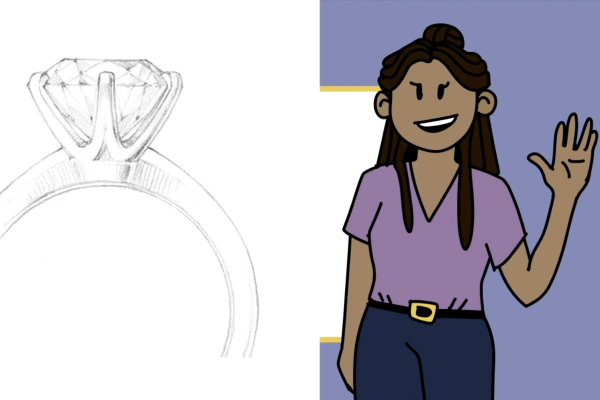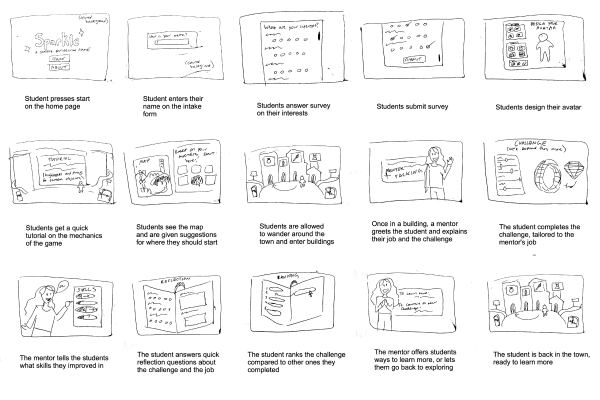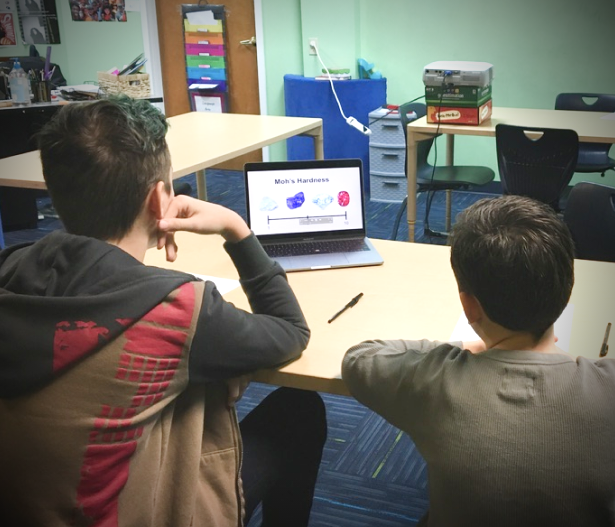How might we make STEM careers more appealing & accessible to an underserved middle school audience?
U.S. middle schoolers, especially girls and students of color
Though gender achievement in STEM topics is at parity through early high school, as girls approach college they are less likely to pursue advanced math & science classes or declare STEM majors than their male counterparts.
Women make up half of the U.S. college-educated workforce, but less than 30% of the workforce in STEM fields (NGCProject).

I led an initial discovery process to understand existing products and services for underserved STEM audiences, and conducted contextual inquiry volunteering with TechNights. I talked with young students to understand their motivation to engage in STEM learning and how they think about career development.

Hmmm...Let's lean into this
1. Current interventions like extracurricular camps or clubs have multiple barriers to entry for underserved STEM populations, including time, finances, and motivation.
2. Middle schoolers seek STEM extracurriculars due to boredom & repetition inside the classroom.
3. Middle schoolers as young as 10 are excited and curious to learn about different professions.
Encourage middle schoolers to see STEM in connection with exciting, creative professions
My teammate and I knew our solution needed to offer mass-market accessibility,
connect students' interests to academic pursuits, focus on role models over dry educational tutorials, and encourage
a growth mindset through dispositional learning & reflection.
Our ideation and validation with game design experts and educators yielded a mobile/desktop web-based
game concept with apprentice-like challenges. These would be led by in-game "mentors" and supplemented with an "Explorer's Journal" feature to guide students' journey.


"Is this a real game? If this is ever published I would love to get it. I would pay money for it."
Going back to middle school
I tested the concept video with four Pittsburgh middle schoolers. In the session students took a pre-survey, watched the concept video, took a post-survey, and participated in a followup discussion.
Female viewers were particularly excited about the game, and asked when it would be released. Students also emphasized that the game would be a safe place to "try out new subjects and see if [they] would like them."

School is for learning, not for passion
Our test viewers further reinforced our initial finding that school does not help them connect their passions with "academic pursuits" - a barrier that programming like Sparkville can help address. While students affirmed the value of career learning and showed great enthusiasm for the game, their post-survey responses indicated room for the game to more explicitly tie STEM concepts to featured challenges. In future design cycles I would test fun, resonant ways to incorporate this into the game's curricular design and reflective practice.
© 2019 Infinitude. All rights reserved | Design by W3layouts & K. Johnstone